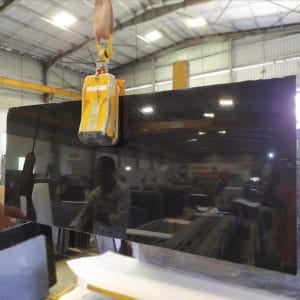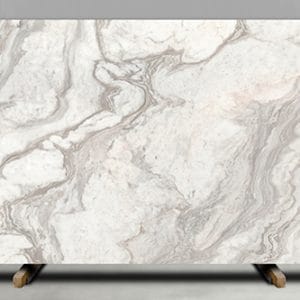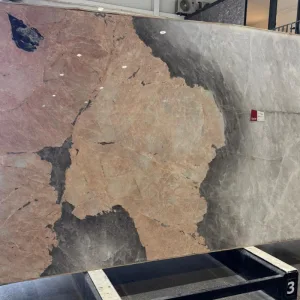It seems like there is always one name that comes up when people or artists talk about granite. Black granite that is perfect. This natural stone has become a classic choice in modern kitchens and high-end rooms thanks to its deep, rich black color and smooth, even surface. It’s classy, goes with almost any wood color, and has a bold, high-end look that will never go out of style. Some people do have one big question, though. Is Absolute Black Granite really never going to get stained?
You might be shocked by the truth. Even though granite is one of the hardest stones out there, it’s not quite true that it won’t stain. Let’s dig deeper into what makes Absolute Black Granite special, how it reacts to spills, and what you can truly expect when it comes to spots.
What’s Unique About Absolute Black Granite
Absolute Black Granite is one of the densest and hardest granites you can find. It is mostly found in India and South Africa. Unlike other granites that often come with a mix of flecks lines and color differences, this one is incredibly symmetrical. The stone has such a fine grain that it looks almost like a thick sheet of polished black glass. This density is one of the reasons many makers sell it as care free and even stain proof.
Another thing to note is that this granite has very low porosity compared to lighter colored stones. Porosity is simply how much the stone can absorb liquids. The less porous it is the less likely it will soak up spots. That is why Absolute Black gets a reputation of being “impervious” to spots.
The Stain Proof Myth
Now let’s get real for a moment. No natural stone can honestly be called 100 percent stain proof. Absolute Black Granite does prevent stains far better than most stones but under the right conditions it can still show marks.
The problem comes down to two main reasons. First is whether the rock is truly raw and unpolished. There is a huge global desire for Absolute Black and sadly that has led some providers to falsely improve the stone. They use paints or plastic fills to color lighter parts or to hide flaws. While the stone may look beautiful at first these improvements make it more sensitive to scratching and discoloration.
The second factor is the quality of the rock. Polished Absolute Black is much more resistant to absorption than polished or leathered finishes. Honed finishes have a matte look that tends to open up the surface more making it easier for oils and spills to leave a shadow.
Real World Experiences With Stains
If you talk to people who have had Absolute Black tables for several years you will hear different stories. Some will swear nothing ever stains their tabletop. Others may mention strange dark spots after cooking with olive oil or a faint ring left behind from a glass of wine.
Most often the cause is oil. Oil can seep in if it sits too long on the top. Unlike water which generally disappears without leaving a sign oil enters deeper and forms that darker spot which can be hard to pull out. Acidic liquids like lemon juice or vinegar usually do not damage Absolute Black but they can cause flaking on improved slabs that were treated with dyes.
Why Some Absolute Black Looks Different
Here’s another fact many people don’t know. Not all Absolute Black pieces are the same. True top grade Absolute Black is extremely thick and uniform. Lower grade chunks may have microfissures, lighter spots or even a small gray undertone. To make them look darker some providers add a black glue or dye. These polished stones are much more likely to show spots or fading when exposed to common cleaners or sunshine.
If you are shopping for Absolute Black always ask if the slab is dyed or treated. A simple test you can do is rub a cotton ball soaked in acetone on the surface. If it picks up any black material the slab has been painted. Natural unwashed Absolute Black should not bleed color.
Sealing or Not Sealing Absolute Black
This is one of the most discussed topics in the stone business. Some professionals say Absolute Black is so thick that it does not even need a finish. Others suggest closing just to be safe. So what is the right answer?
If you have a real quality Absolute Black slab in a glossy finish then finishing may not be necessary. In fact sometimes adding a sealer can actually create a cloudy or streaky look since the stone does not absorb it evenly. However if your slab is polished or if you are not fully sure about its grade then finishing is a smart move. A quality thorough sealer can help reduce leakage and give you peace of mind.
How to Keep Absolute Black Looking Perfect
Even if it is not fully damage proof Absolute Black Granite is still one of the easiest stones to care for. Here are some useful tips to keep it looking its best
- Wipe spills quickly. Especially oils, wine, and coffee. The faster you clean the less chance of absorption.
- Use a light cleaner. Stick with pH neutral stone cleaners or simply warm water and light dish soap. Harsh chemicals can damage colored or polished slabs.
- Avoid scratchy pads. They can dull the glossy finish. Use a soft cloth or sponge instead.
- Test your slab. Every once in a while place a few drops of water on the top and let it sit for 10 minutes. If it darkens the stone you may want to reseal. If it stays the same no need to worry.
- Protect from oils. If you do heavy cooking with oils, keep a cutting board ready and use trivets.
Common Mistakes Homeowners Make
Many homes think because the stone is black and shiny it hides everything. While it does not color easily it does show fingerprints, water spots and smudges more clearly. Polished Absolute Black in particular will show every smudge under bright lighting. Regular wiping with a microfiber cloth is usually enough to keep it looking crisp.
Another mistake is using common home cleaners like bleach or glass cleaner. On an expanded slab these can strip the dye or glue and leave blotchy areas. On a natural rock they may not cause stains but they can still leave lines.
Comparing Absolute Black With Other Stones
If stain resistance is your number one worry, Absolute Black Granite stands far ahead of lighter granites like Kashmir White or Santa Cecilia. Those stones are far more weak and need regular sealing. On the other hand, designed quartz surfaces are theoretically more immune to marks than granite since they are non porous. However quartz does not have the same natural depth and lasting charm as a true Absolute Black piece.
Marble is another comparison. Many people love the beauty of white marble but it is known for stains and etching. If you want something darker and easier to live with, Absolute Black Granite is hands down the better choice.
The Bottom Line
So is Absolute Black Granite really stain proof? The honest answer is no. But it is about as close as you can get in the raw stone world. True top quality Absolute Black is incredibly thick and highly immune to most marks. With basic care and some knowledge it will look perfect for decades.
The key is making sure you are getting a real raw slab and understanding the finish you are picking. Polished Absolute Black is the most flexible and useful. Honed finishes can be beautiful but they take more effort.
If you love the bold dramatic beauty of a deep black stone and you are willing to wipe up drips quickly, Absolute Black Granite is one of the best purchases you can make for your kitchen or bath. It is not totally bulletproof but it comes very close and gives a natural luxury that few materials can match.
Final Thoughts
Absolute Black Granite has won its name for beauty and power. While no stone can be exactly stain proof this one gives homes the faith that daily life won’t leave lasting marks. It is sleek, stylish, and shockingly low upkeep. When looked for properly it will be the star of your room for years to come.
If you are considering it for your project, remember to test the slab, ask the right questions about treatments, and choose the right finish for your lifestyle. With those steps you will enjoy one of the most beautiful and lasting surfaces available.
About BBV Impex
BBV Impex is a leading marble and granite exporter & supplier known for its honesty, consistency, and deep understanding of natural stones. We source our materials directly from trusted quarries and deliver carefully processed slabs and blocks to clients worldwide. Our team believes in long-term relationships built on trust, quality, and commitment. From classic marbles to durable granites, every stone we supply carries the mark of fine craftsmanship and natural beauty. At BBV Impex, we don’t just trade stones — we help builders, architects, and homeowners bring their design ideas to life.






